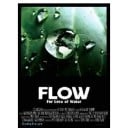
Lords of Water
Every living and breathing organism on the planet needs water to survive. This basic organic need, plus all the other things we need water for, like bathing, cleaning, growing food, has made water the Earth's most precious natural resource.
For over four billion years it has been readily available for living things to drink and use without any significant problems or issues regarding its availability and general supply. However, over the last 100 years this has changed drastically and today water is facing its biggest threat ever.
With 7.4 billion people on the planet, our global water supply can no longer meet the population's demands for it. Overpopulation, wastage, industrial pollution and global warming contribute to the planet's dwindling water supply. According to the UN in the next 25 years (or roughly by 2050) at least one in four people will be living in a country suffering from water shortages. This is highly alarming and a heavy cross to bear for future generations.
However, one sector sees this looming global water crisis as a huge source of future profits. The financial sector aims to commoditize water and many banks and trading companies, such as Goldman Sachs, Deutsche Bank and more, are rushing to invest billions in all things water including ownership of water sources, water usage rights, distribution and even storage.
Yes, we are now living in the age of the "Blue Rush" where big businesses are systematically grabbing as much of this new "water market" as they can so they can trade the newest and most profitable commodity in the history of humanity, "Blue Gold" or water.
In Australia, UK and USA there is now a monopoly of water. It is traded in the stock markets, and many people are already feeling the effects. In Australia, the driest country globally, farms are struggling with many having to close down because they can no longer afford to pay for the water needed to feed their livestock and irrigate their fields.
One can't help but ask: If regular people in a first world country can't cope with this new water market, what about those living in more impoverished, lesser developed nations? Should water be categorized as a commodity like oil or coal or preserved as an open resource, free for all to use?
Within the next decade or two humanity's fate will be decided in terms of its dependency on water, as one side of this "great water divide" will eventually win over the other. One side is supporting and already actively profiting from the financialization of water. They argue that monetizing the water is an effective way of conserving it and ensuring its continued existence on the planet. They say that if we have to pay for it we won't waste it and we'll find ways to use it more efficiently. On the opposite side are those who defend the basic human right for free access to clean and potable water.
Which side are you on?
Directed by: Jérôme Fritel



